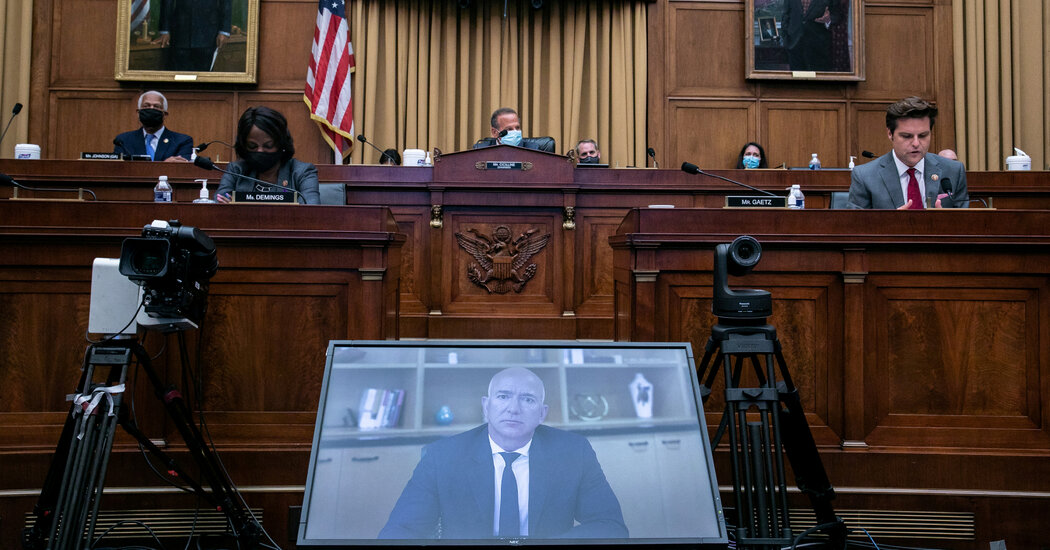Amazon, Apple, Facebook and Google had roles as “gatekeepers” in common and controlled prices and the distribution of goods and services, the report said. That made third-party businesses — like app developers on Apple’s App Store and sellers on Amazon’s marketplace — beholden to the companies’ demands, the report said. The word monopoly appeared in the report nearly 120 times.
“With no restrictions of tech companies to own and compete on their own platforms, which are the only options for so many small businesses, it takes away any real sense of competition,” said Rep. Pramila Jayapal, a Democrat of Washington, who has been a vocal critic of Amazon.
Even without full bipartisan support, the report sets important groundwork, said Gene Kimmelman, a former senior antitrust official at the Justice Department. He said the breakup of AT&T in the 1980s was supported by policies set forth by Congress. Tuesday’s report, he said, was “the foundation for legislation and regulation that enables antitrust cases against Google, Facebook and others to actually break markets open to more competition.”
Google disputed the findings and said its free service had been a boon to consumers. “Google’s free products like Search, Maps and Gmail help millions of Americans,” the company said in a statement, “and we’ve invested billions of dollars in research and development to build and improve them. We compete fairly in a fast-moving and highly competitive industry.”
Amazon said the committee’s recommendations could end up harming small businesses and consumers.
“The flawed thinking would have the primary effect of forcing millions of independent retailers out of online stores, thereby depriving these small businesses of one of the fastest and most profitable ways available to reach customers,” Amazon said in a blog post. “Far from enhancing competition, these uninformed notions would instead reduce it.”
Apple “vehemently disagrees with the conclusions in this staff report,” the company said in a statement. “The App Store has enabled new markets, new services and new products that were unimaginable a dozen years ago, and developers have been primary beneficiaries of this ecosystem,” the company said.
Facebook disagreed that its mergers with Instagram and WhatsApp were anticompetitive. “We compete with a wide variety of services with millions, even billions, of people using them,” the company said in a statement. “Acquisitions are part of every industry, and just one way we innovate new technologies to deliver more value to people.”
[ad_2]
Source link


